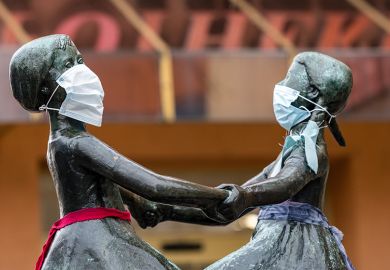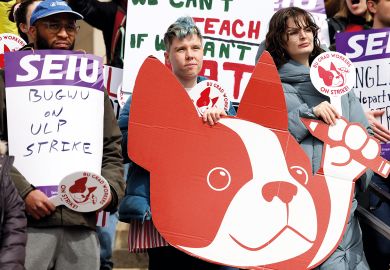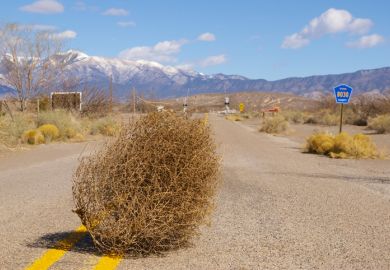Speculation about what the future after Covid-19 may look like is echoing across the world. Possibly, for the first time, we are witnessing the beginning of a worldwide conversation. And it is my impression that the sentiment has shifted from an initial “try to adapt and stay safe” to “let’s grab this as an opportunity to improve”.
As a faculty member and physician at a university hospital, I certainly view the current situation as having the potential for betterment. Because of Covid-19, we will be forced to reshape our economic and educational systems. We will alter our social norms, with a conscious effort not to let distancing lead to isolation. We will also need to build a more cohesive world response, based on collaboration rather than competition.
I view all of these as positives and particularly applicable to academia because the coronavirus crisis has enhanced certain characteristics about the sector that I have observed over the past 17 years that I’ve been in my field. Their essence stems from a concept I call “wild academism”.
Wild academism is when we just keep wanting to, or having to, achieve more and more. So much so that, in the end, we lose sight of why we are doing it.
It is when our actions and attitudes towards our colleagues are strictly professional, to the extent that they become devoid of “non-essential” or “unrewarded” attributes, such as kindness and empathy.
Wild academism pushes us to grow professionally astray, rather than in line with our personal development. One example is the justification of “being busy” and “not having any spare time”. Since nothing is “free” in academia, then all activities must enter into the academic counter.
Yet, it is our relatively free time, created by the current crisis, that is providing a nidus for reflection and an inspiration rarely felt during the usual grind of our day-to-day lives as academics.
Another example of wild academism is investing academically into an achievement that will mark a score, rather than into actions with more substance but less glamour.
Wild academism renders us more egocentric, or “academocentric”, promoting righteousness of values such as “academic freedom” and “equality” for all. However, the latter qualities have to fall within the politically correct terms acceptable to academia, such as “gender” and “race”. Of course, I support these efforts; however, I support more the overarching goal they stem from: genuine broadmindedness.
I have witnessed an increasing level of intolerance in the name of academia. If an attitude does not fit “acceptable” norms, for example, or an action has transcended the proper channels, then they are quickly bashed as “inappropriate”.
Everything surrounding academia is evaluated according to its own golden measuring stick that goes by the name “academic rigour”. By definition, then, wild academism discourages creativity when it falls outside the boundaries of this rigid tool.
Taken altogether, wild academism creates a negative atmosphere within and among institutions, while resulting in burnout at the individual level. I liken it to wild capitalism, which alienates the working force, and breaks down social systems by eroding values and micro-economies.
But one positive outcome of being forced to slow down is that it has stimulated more reflection, as well as the realisation that we can take the time to communicate better, to provide more for others, to spend on simple activities, and to learn new things that do not necessarily have an immediate perceived benefit to our academic portfolio. This may be the spark of creativity.
The crisis has also shown us that no institution has a claim on knowledge, and that collaboration is the best way to get through this uncharted territory. The way knowledge acquisition and dissemination formed during the pandemic was also novel, moving faster than usual and occurring largely outside the walls of academia.
By breaking down walls of insecurity, we all benefit from the spotlight, rather than compete for it. I see similarities in how we have all benefited from the reduction in car and plane emissions, lower pollution levels and a revival of the natural. When the crisis is over, we can’t return to pre-corona consumerism with its consequential environmental degradation. That way of living now seems obsolete.
Likewise, we mustn’t return to a culture where wild academism is allowed to flourish. As faculty members, we need to lead the change; we can restructure our ranking and reward systems, encourage nurturing output, collaboration and environmental sustainability. The curve of our output needs to “flatten” in its current sense, and broaden on a humane scale.
Success should be based upon need and its progress towards a common, human-centred goal. When we feel that we have all gained, and are getting closer to this target, we will have freed ourselves from wild academism and rediscovered the true mission of universities.
Mona Nasrallah is an associate professor of clinical medicine, endocrinology and metabolism at the American University of Beirut.
Register to continue
Why register?
- Registration is free and only takes a moment
- Once registered, you can read 3 articles a month
- Sign up for our newsletter
Subscribe
Or subscribe for unlimited access to:
- Unlimited access to news, views, insights & reviews
- Digital editions
- Digital access to THE’s university and college rankings analysis
Already registered or a current subscriber? Login








